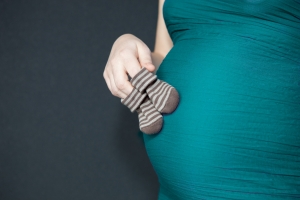Women go through many emotional and physical changes during pregnancy. These changes can be experienced from conception to childbirth, and they range from faster heart beats to increasing tummy size. Hormonal fluctuations will play a big part in this. You can find some useful information below if you want to know more about hormonal changes during pregnancy.
Like most women, you might be experiencing hormonal changes, such as mood swings, constant sleeping, food cravings, and constipation, during pregnancy. This may come as a surprise, but these hormones are actually helping you during pregnancy, especially with your baby’s development. Some of the pregnancy hormones around a woman’s body are still not known, but there are popular ones, such as progesterone and estrogen (or oestrogen), which are largely studied. These hormones can be found in the placenta throughout pregnancy, and their levels will increase until the baby is delivered.
Progesterone:
This endogenous steroid hormone has a very important role as it helps calm the uterine muscle in order for the fertilized egg to land safely during implantation. The levels of the progesterone hormone will increase during pregnancy in order to help sustain the uterus inner layer and provide support for the growing fetus. Simply put, it will help the baby to stay in position as the uterus is prevented from contracting. In addition, progesterone forms a tranquilizing effect to provide protection against stress and to help promote sleep. This hormone is also important because it develops the endometrium and discharges fluids with the aid of estrogen. Progesterone also plays a role in maintaining the placenta’s activity, fighting undesirable cells to protect the womb, helping breast tissue grow, and working with estrogen to prevent lactation until childbirth.
On the downside, progesterone can cause other changes that are rather unpleasant, such as acne breakouts, heartburn, constipation, runny nose, headaches, increased risk of kidney infection, and blurry eyesight, due to escalated levels.
Estrogen:
Similar to the progesterone hormone, estrogen is present throughout pregnancy and will increase during labor. The increased estrogen level is associated with many hormonal changes during pregnancy including sex drive and mood (both negative and positive). This hormone also stimulates the growth of the uterus and improves the flow of blood between the placenta and uterus by increasing the nitric oxide effect. Nitric oxide is a gas, and it expands the blood vessels. In addition to this, increased estrogen will prepare the breasts for the production of milk. In general, estrogen secretion will peak immediately before childbirth and then gradually decline afterward. It helps to develop the baby’s sexual characteristics, activate the maturing of the reproductive organs, regulate the baby’s bone density, and aid blood flow in the uterus. The elevated estrogen levels during pregnancy will cause changes such as red blotches or rashes on the skin.
Let’s take a closer look at some of the other hormones that are linked to hormonal changes during pregnancy.
Human Chorionic Gonadotropin (HCG):
This hormone will be activated from the moment that you get a positive sign on a home pregnancy test, even though it might not be noticeable at that time. It will be manufactured within days after a fertilized egg is implanted in the uterine lining by cells from the new placenta. It is responsible for starting the hormonal changes by encouraging the corpus luteum to release more progesterone and estrogen. The HCG hormone is present in your blood and urine, and it will increase rapidly during the first few months of pregnancy. Even more of it will go through your bloodstream if you are pregnant with more than one baby. The increasing levels of HCG during the first trimester will cause queasiness or morning sickness.
Relaxin:
As its name suggest, this hormone performs the important function of relaxing the intrauterine ligaments. If the baby does not have more living quarters, it will be extremely difficult for you to try and push him or her from the uterus. Relaxin loosens up things down below to ease the passage for the baby throughout the birth canal. This hormone also relaxes the arteries for them to handle the increased volume of blood during pregnancy without sending blood pressure levels through the roof. There is a downside to this as it could affect some things you do not want to relax. For instance, if the muscle that stops stomach acid from going into the esophagus becomes loose, then you will likely end up with heartburn.
Oxytocin:
This hormone is referred to as the love or trust hormone as it helps with bonding. Most pregnant women experience mild elation and strong nesting actions during the days and weeks before delivery. Large amounts of this feel-good bonding hormone will go to the brain during delivery. After delivering a baby, a woman will hold him or her to develop baby lust, which is a chemical reaction that occurs when a newborn’s pheromones encourage the production of more oxytocin—thereby enhancing the baby-mother bond.
There are additional resources available if you want to learn more about hormonal changes during pregnancy.



